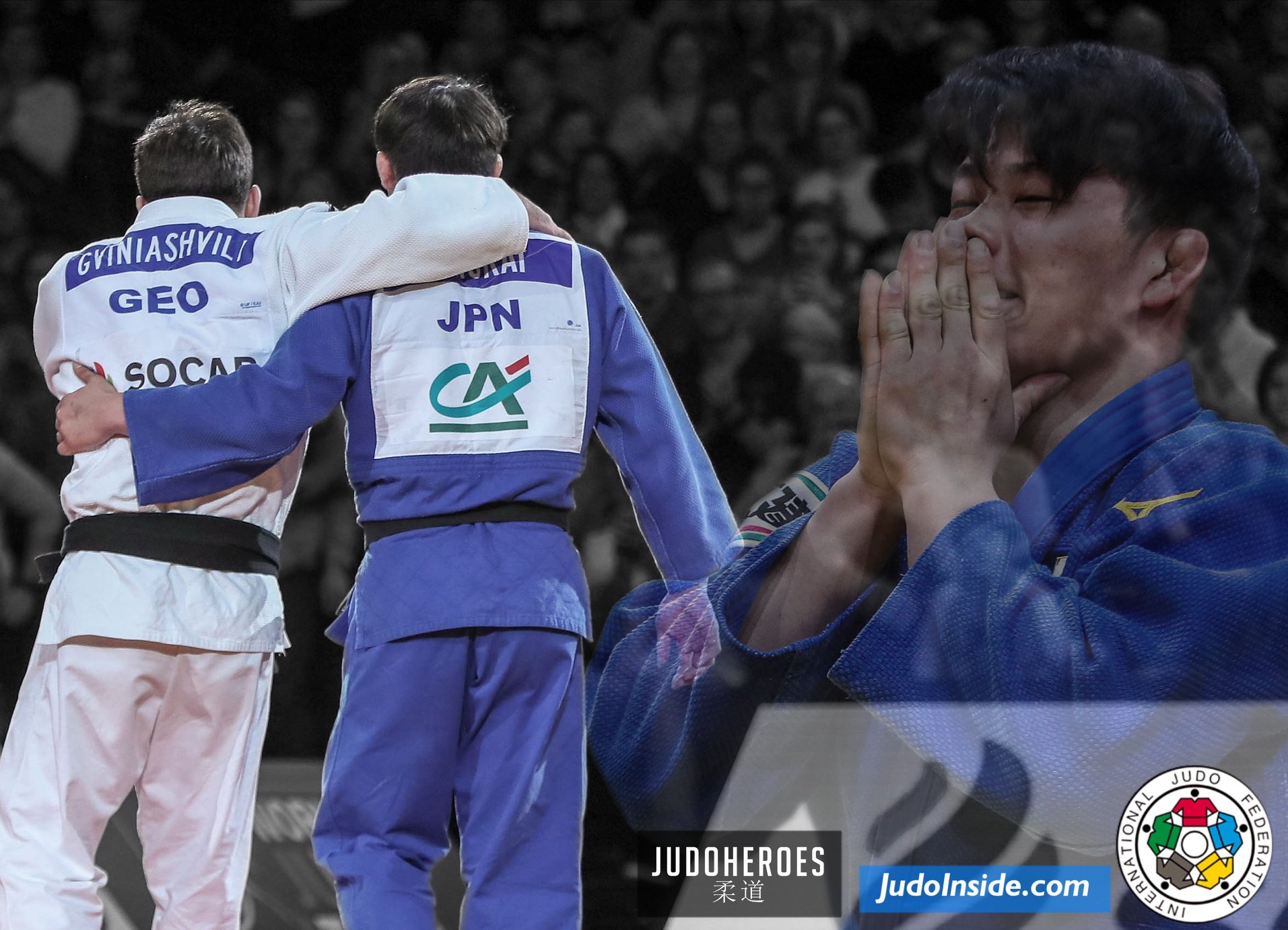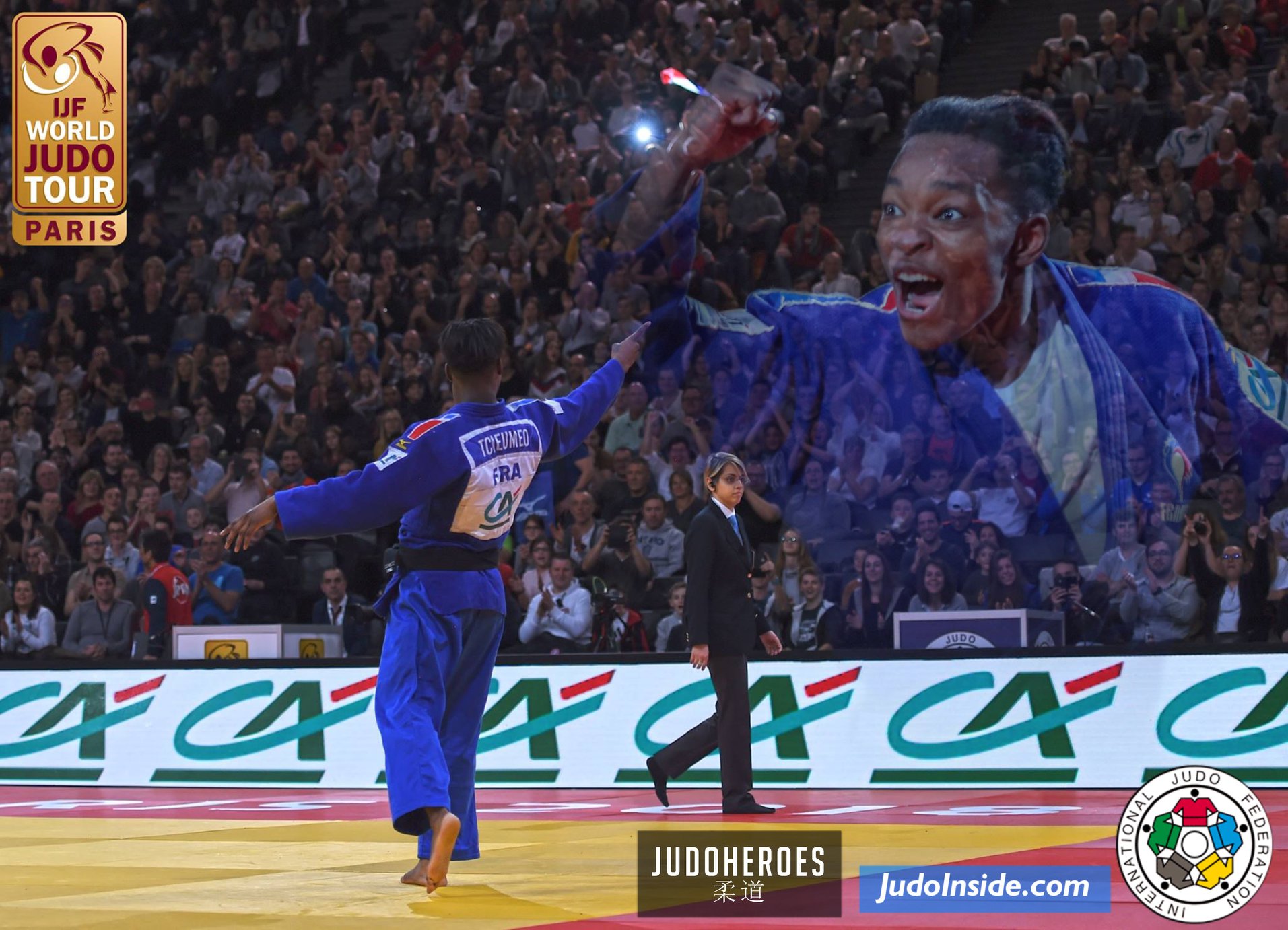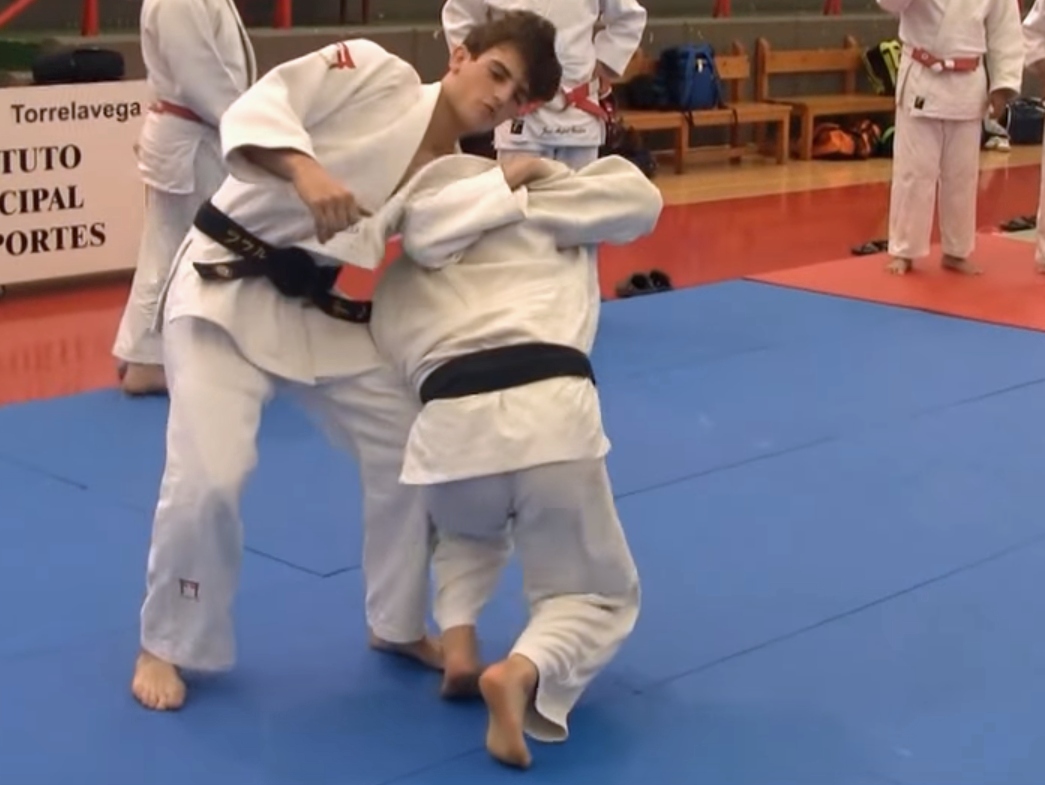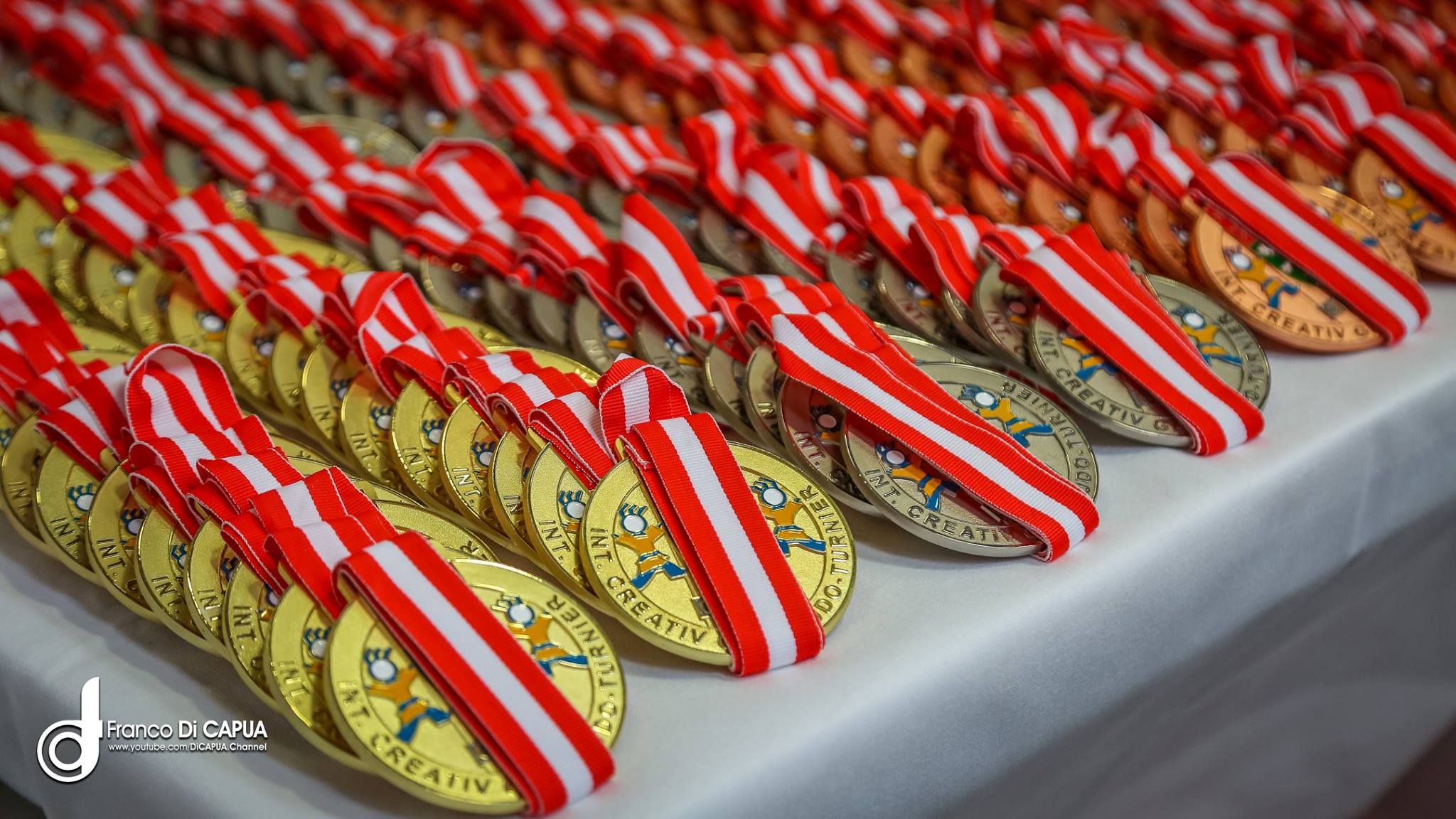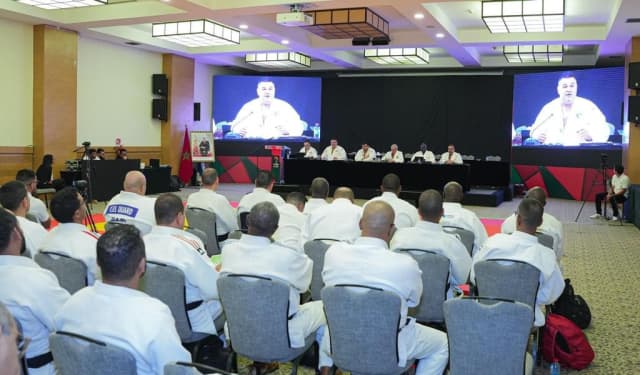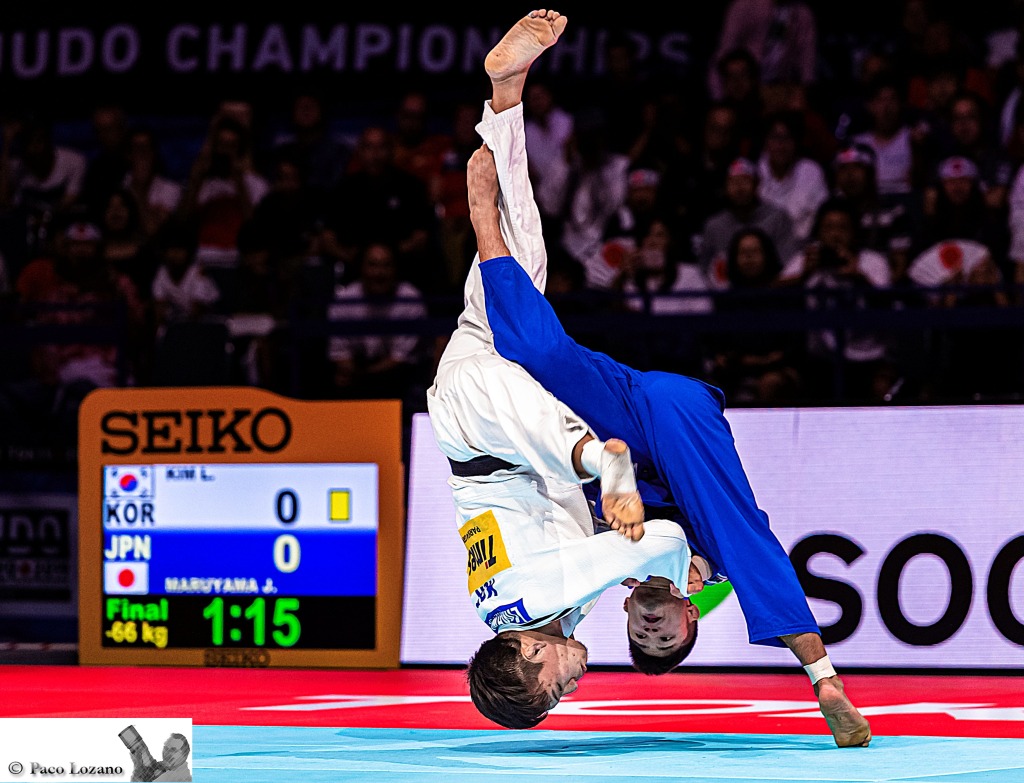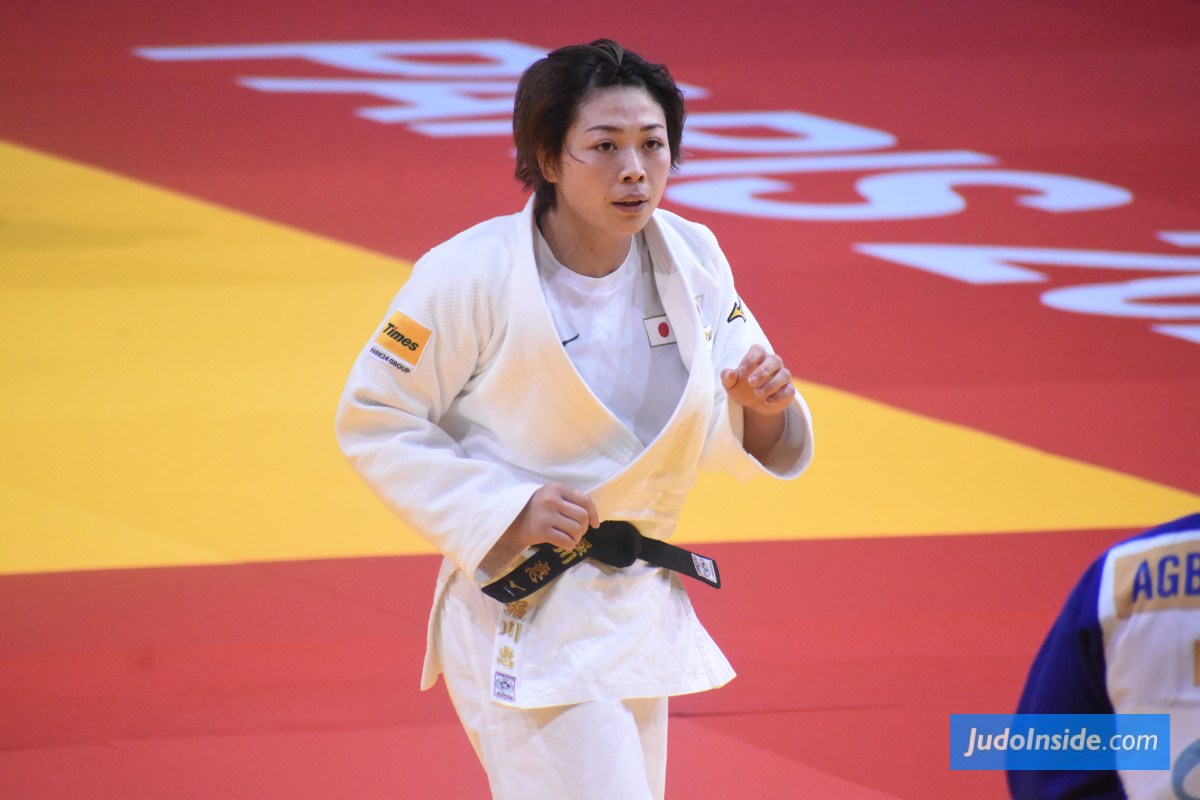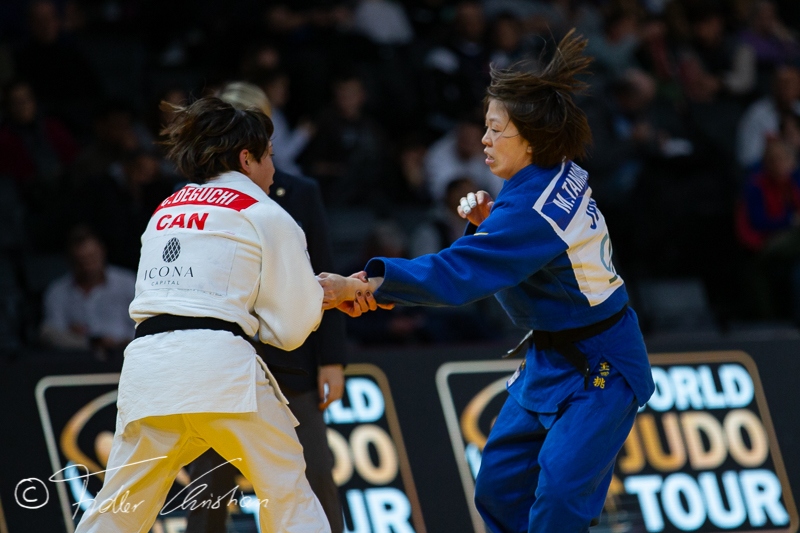Grand Slam Paris delivers good discussions about judo
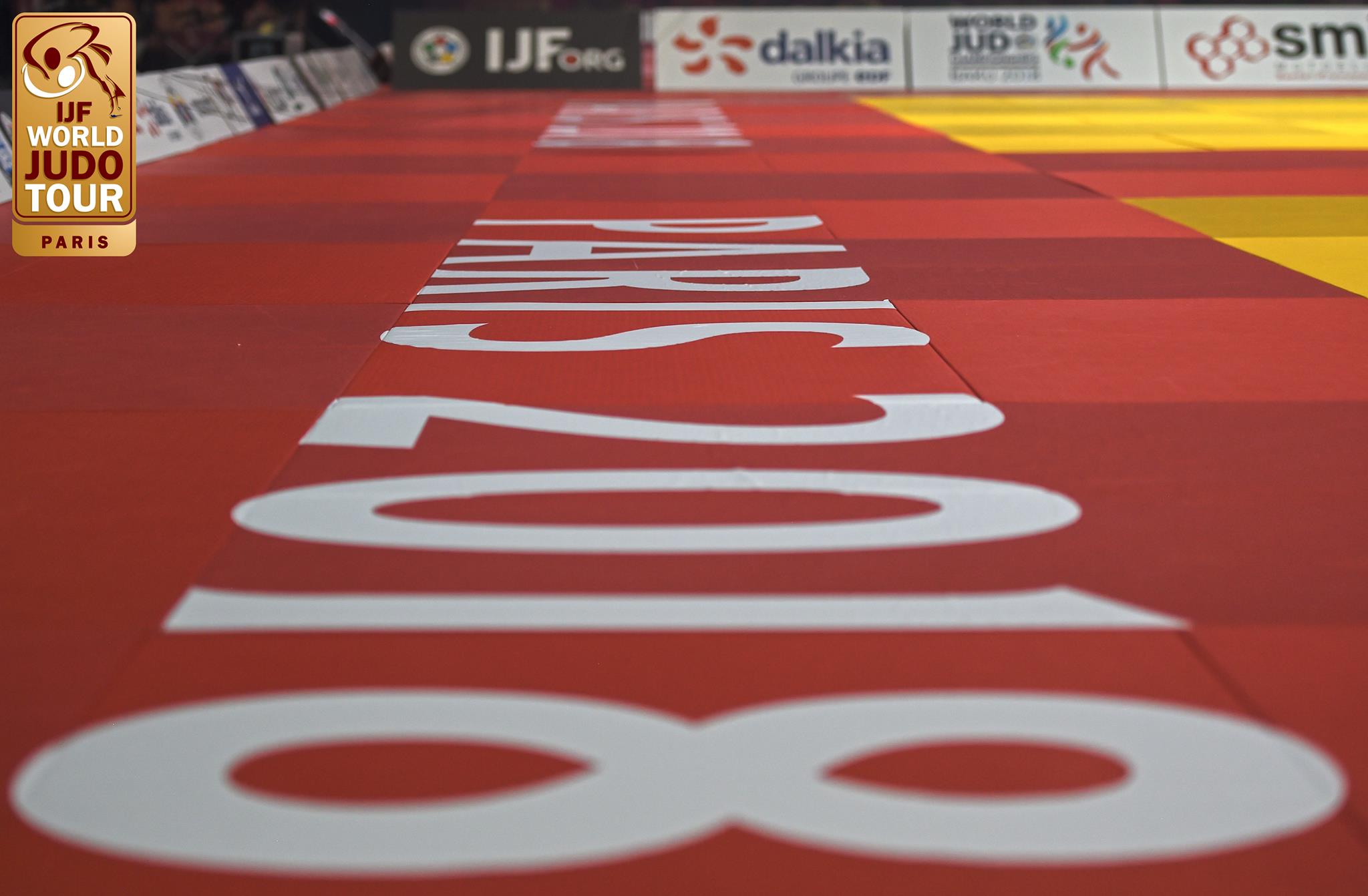
 15 Feb 2018 10:30
15 Feb 2018 10:30

 IJF Media Team / International Judo Federation
IJF Media Team / International Judo Federation
It’s always great to analyse judo and the most recent development in our sport. Whether they are critical or not, at least discussion leads to a good modus in which it should direct. The Paris Grand Slam has been such a milestone event that should be the benchmark. Still there have been some interesting situations that need more attention for the discussion among coaches and athletes.
JudoInside partner JudoCrazy is always a useful reference when it comes to analysis of the new rules. The fans of JudoCrazy. Oon Yeoh, founder of the website delivers analysis of appealing fights but is also a reference when it comes to interesting situations such as last weekend’s hansoku for Guranm Tushishvili. At first sight no penalty worth but the IJF delivered the footage in the slow motion and we could see an action ‘against the spirit of judo’ penalised with Hansoku-Make.
“Guram Tushishvili of Georgia was served this penalty in his semi-final match against Japan's Kokoro Kageura when he kneed the Japanese in the ear.” In the footage Japanese heavyweight coach Keiji Suzuki can be seen complaining about the "kick" and after the video judges reviewed the replay. IJF TV commentators Sheldon Franco-Rooks and Neil Adams agreed that the penalty was deserved.
More situations are questioned such as scores or not like in the Christa Deguchi case last weekend.
Oon Yeoh: “Under the new 2018 IJF rules you can transition from ground to standing for a throw. In her clip you can see Christa Deguchi transitioning from groundwork to standing to do sumi-gaeshi. Why no score?”
Another situation: “We all watched in awe as Sally Conway (GBR) turned a near throw against her into an osaekomi that gave her an ippon win the final of the -70kg division in the 2018 Paris Grand Slam. What a win! But lost in all the action was the fact that she actually did a counter which wasn't scored. If you look very carefully, after Arai tried to do uchimata and failed, Conway actually spun around and took her to the mat in a continuous motion. That deserved a waza-ari.”
“It's all academic because in the end Conway held Arai down for 20 seconds for ippon. But if that score had been given, she would have had to hold Arai down for only 10 seconds for waza-ari-awasatte-ippon which would have been the correct score.”
"A blow to the head can result in serious injury but if it's unintentional, there's no penalty given. This was the case in the Mukai (JPN) vs Gwak (KOR) semifinal match at the 2018 Paris Grand Slam."
JudoCrazy points us on trends. “The Georgians have shown that it's totally possible to do counters like ura-nage without having the back touch the mat. Look at how Papinashivili and Shavdatuashvili did it in the recent 2018 Paris Grand Slam.”
In regard to the new rules. “There's been some confusion about this issue of uke landing on his/her back during a counter. A really good example to illustrate what the new rules says about this is the match between Uta Abe (JPN) and Charline Van Snick (BEL) last weekend. Abe comes in with a low uchimata or ouchi-gari movement. Van Snick initiates a yoko-guruma type counter. Under the new 2018 IJF Rules whenever uke lands on his/her back during a counter, it can never be a score. So although Van Snick was in control of the counter, there is no way for her to score simply on the grounds that her back had hit the mat first. Should Abe have gotten the score or should it have been no score for either player?”
Follow more discussions at JudoCrazy.
 like
like
 share
share
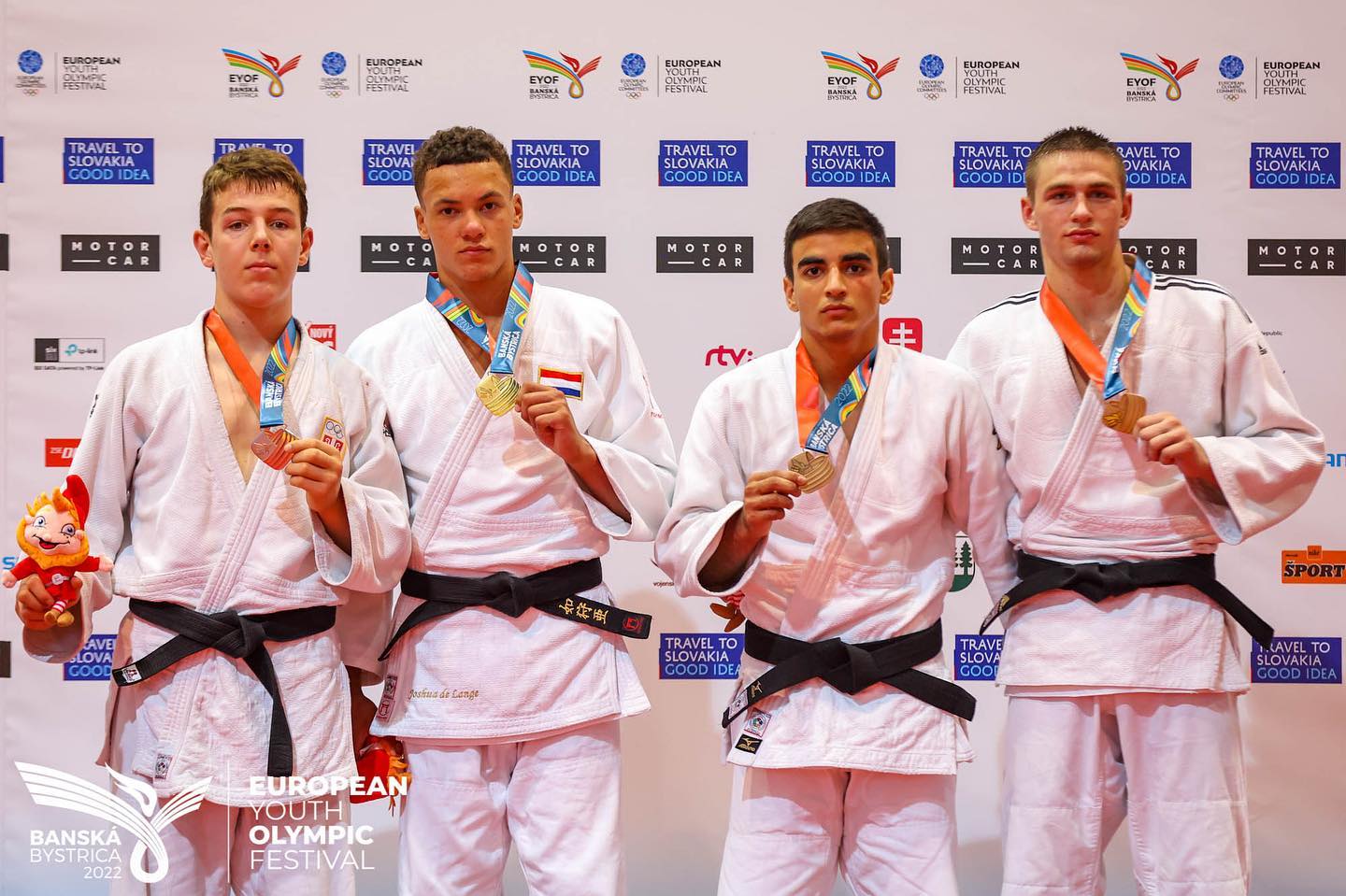
| Result | City | Date |
|---|---|---|
| 2 | Paris | 2024 |
| 1 | Abu Dhabi | 2024 |
| 1 | Zagreb | 2024 |
| 3 | Belgrade | 2023 |
| 2 | Montpellier | 2023 |
